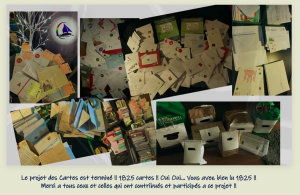Dear Mr. Huish,
Thank you for your correspondence of March 26, 2020. CSC is committed
to protecting the safety and health of staff, inmates, and the public
during these unprecedented times. CSC employees, especially those who
are working in our institutions, on the frontline, and in communities
supervising offenders are working tirelessly day in and day out to keep
our operations going under exceptional circumstances.
To prevent the spread of COVID-19 in our institutions, CSC has suspended
visits from the public and volunteers, as well as all temporary
absences, unless medically necessary, work releases, and non-emergency
transfers of inmates.
Understanding the impact these measures have on the inmate population,
CSC has temporarily waived the food, accommodation and telephone
deductions, and maintained the inmates’ level of pay. We recognize that
family contact is essential, especially in these challenging times. As
such, we have added additional minutes to the inmates’ phone card and
have seen an increase in the number of telephone calls and
video-visitation. We will continue to monitor these measures as the
situation unfolds.
To protect our employees, CSC ensures ongoing prevention education and
awareness and active screening of all critical staff entering the
institutions. Staff must adhere to all health and safety directions
provided, including but not limited to active screening, hand washing
before entering the site, physical distancing, cleaning of common areas
and equipment, and following public health’s advice when off-duty. In
addition, institutional routines and rosters have been modified to
prevent and minimize the spread of the virus within the institution.
CSC has also equipped its correctional staff with the required Personal
Protective Equipment, including masks. CSC has enhanced its cleaning
protocols, including disinfecting common areas of contact. When an
employee tests positive, CSC works with the local public health
authorities to implement a number of measures, such as contact tracing,
ensuring self-isolation, testing others as needed, and disinfecting the
site. Finally, CSC has implemented its own tracing capability and is
working collaboratively with the Public Health Agency of Canada.
To protect inmates, CSC is self-isolating inmates being transferred to
federal custody from the province for 14 days, providing them with soap
and hand sanitizer, keeping them informed through regular communiques,
and working with inmates to review existing treatment plans with a focus
on older offenders and those with serious underlying health conditions.
CSC has protocols in place when an inmate tests positive for COVID-19,
such as placement in medical isolation in his or her cell or room.
Where required, CSC is providing masks to inmates. Finally, CSC is also
equipped with low oxygen flow equipment to treat milder cases and has
established clear protocols and procedures with local hospitals should
inmates need to be transferred to those facilities for treatment.
As we move forward, CSC is continuing to actively monitor, plan and
engage with health authorities on further precautions we can take to
prevent the spread of COVID-19 in our institutions and communities to
minimize the risks for the public, employees and inmates. We remain in
contact with local public health departments across the country so we
can stay up-to-date on issues, solutions and best practices. CSC staff
and inmates are identified as priority one for testing, and like all
other Canadians, we are tested by local public health authorities.
In regards to the release of offenders, the _Criminal Code of Canada_
and the _Corrections and Conditional Release Act_ (CCRA) are the
legislative frameworks that govern both the eligibility dates of
federally sentenced inmates and the requirements for release
consideration. CSC has worked collaboratively with the Parole Board of
Canada (PBC) to streamline the case management process and is actively
reviewing cases of inmates whose risk can be safely managed in the
community for presentation to the PBC. As noted by the PBC on their
website [1], they will consider the offender’s health or health risk
posed by the COVID-19 pandemic, if relevant as part of the risk
assessment, along with all other information on file.
In addition, CSC is in regular contact with its community partners,
including Community Residential Facilities (CRF), to ensure we work
together to address any challenges presented by the current situation.
Community Residential Facilities continue to follow public health
guidance and we are working to ensure they have the proper supports and
resources during this time. CSC is also looking at all options in order
to ensure that we are not creating undue accommodation pressures on our
CRF partners. CSC is working with the PBC to ease the pressure on the
CRFs during the pandemic, by recommending a change to the residency
requirement from a CRF to a home or family environment, where such a
placement is risk appropriate.
Please rest assured that CSC takes its mandate very seriously and
understands that there is no greater responsibility than having the care
and custody of other human beings.
Finally, please note that updates on CSC’s response to COVID-19 are
posted on our website [2].
Hoping you are staying safe and healthy.
Anne
Anne Kelly
Commissioner / Commissaire
Correctional Service Canada / Service correctionnel du Canada
340 Laurier Ave. West
Ottawa, ON
K1A 0P9

 Hello!
Hello!
 Fernand Bessette, a Brother of the Holy Cross, died Sunday, 4 October 2020 on the Feast of St. Francis of Assisi, after a short illness. Fernand was a long-time member of Communitas who attended our Open Door meetings over the years and even acted as an escort driver for us, picking up and dropping off the inmates from Ste-Anne-des-Plaines Minimum Institution as well as from Montee St. Francois Minimum Institution in Laval.
Fernand Bessette, a Brother of the Holy Cross, died Sunday, 4 October 2020 on the Feast of St. Francis of Assisi, after a short illness. Fernand was a long-time member of Communitas who attended our Open Door meetings over the years and even acted as an escort driver for us, picking up and dropping off the inmates from Ste-Anne-des-Plaines Minimum Institution as well as from Montee St. Francois Minimum Institution in Laval.